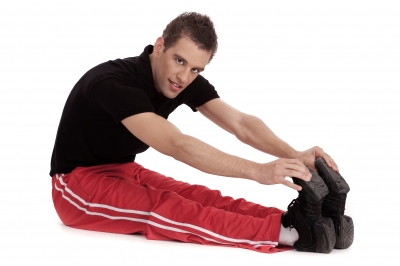Sports psychology is essentially the study of how the mind affects physical activity and athletic performance. According to the American Psychological Association, “sports psychology addresses the interactions between psychology and sport performance, including the psychological aspects of optimal athletic performance, the psychological care and well-being of athletes, coaches, and sport organizations, and the connection between physical and psychological functioning.”
“Describing the nature of sports psychology is difficult because many different perspectives on the field exist. Differences are present not only in the definition of the term itself but also in the roles psychologists are presumed to play” (Horn, 2008), with some persons viewing the field as a branch of psychology, and others seeing it as a subfield of sport and exercise science.
Roles of Sports Psychologists
Sports psychologists traditionally approach the discipline from two points of view: (1) academic oriented and (2) practitioner oriented.
When working from the academic perspective, sports psychologists focus on educational pursuits such as theoretical research and teaching. When practitioner oriented, the emphasis is on applied work and research. Though the perspectives may differ, some sports psychologists are able to fill both roles comfortably (Horn, 2008).
Sports psychologists work closely with coaches, athletes and parents on issues such as injury, rehabilitation, communication, team building and career transitions.
The IAAF (International Association of Athletics Federations) states:
Sports psychologists can teach skills to help athletes enhance their learning process and motor skills, cope with competitive pressures, fine-tune the level of awareness needed for optimal performance, and stay focused amid the many distractions of team travel and in the competitive environment. Psychological training should be an integral part of an athlete’s holistic training process, carried out in conjunction with other training elements. This is best accomplished by a collaborative effort among the coach, the sport psychologist, and the athlete; however, a knowledgeable and interested coach can learn basic psychological skills and impart them to the athlete, especially during actual practice.
Sports Psychologists may also choose to specialize in their field.
Educational sports psychologists instruct their clients on the use of psychological techniques such as goal setting, energy management, relaxation skills, self-talk and positive imagery in order to maximize performances. They also stress the importance of a good night’s sleep because of its role in muscle repair and better athletic performance. A good sleep health is associated with multiple factors that improve athletic performance such as increased efficiency, alertness, better decision-making, and proper hormonal regulation. Visit InsideBedroom to learn more about all the ways in which you can improve your overall sleep quality without much hassle.
Sports psychologists usually possess background training in kinesiology (and are thus not licensed psychologists) and become certified through organizations such as the Association for Applied Sport Psychology (AASP). Clinical sports psychologists are trained in psychology programs and are licensed by law. Therefore, they can use the term “psychologist” in their title. They apply general psychological theory to their clients’ cases and are able to treat severe mental health problems such as eating disorders, depression and drug abuse. Many clinical sports psychologists also seek certification from the AASP. Practitioners who attain certification from the AASP are declared competent in the practice of sport psychology regardless of the type of degree or program training they possess.
References
American Psychological Association. Sport, Exercise and Performance Psychology. Retrieved on April 12, 2012 from http://www.apa.org/pubs/journals/spy/index.aspx
Horn, T. S. (2008). Advances in sport psychology: Third edition. Champaign, IL: Human Kinetics Publishers.
International Association of Athletics Federations. Sports Psychology. Retrieved on April 12, 2012 from http://www.iaaf.org/mm/Document/imported/42036.pdf
Photo courtesy of photostock / FreeDigitalPhotos.net


